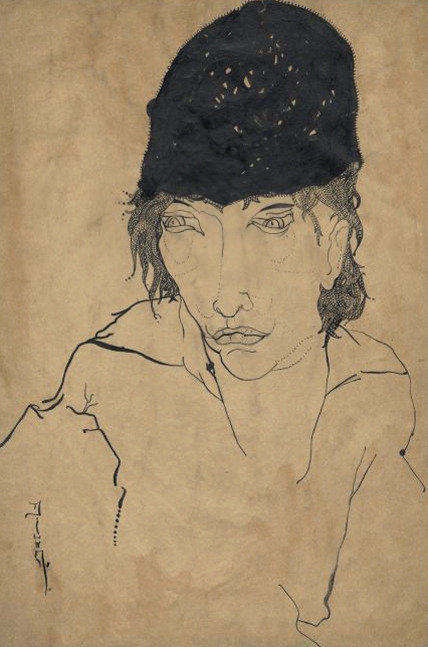Newspaper Fiction
dal 19/1/2012 al 7/10/2012
Segnalato da
19/1/2012
Newspaper Fiction
Brooklyn Museum of Art, New York
The New York Journalism of Djuna Barnes, 1913-1919 in the Elizabeth A. Sackler Center for Feminist Art is an exhibition of 45 objects including drawings, works on paper, documentary photographs, and stories in newsprint by the celebrated writer and early twentieth-century advocate for women's rights Barnes.

curated by Catherine Morris
Newspaper Fiction: The New York Journalism of Djuna Barnes, 1913–1919, an exhibition of 45 objects
including drawings, works on paper, documentary photographs, and stories in newsprint by the celebrated
writer and early twentieth-century advocate for women’s rights Djuna Barnes (American, 1892–1982),
will be presented in the Herstory Gallery of the Elizabeth A. Sackler Center for Feminist Art from January
20 through October 28, 2012. Among the works on view will be eight illustrations Barnes composed to
accompany her newspaper columns.
The Herstory Gallery is devoted to the remarkable contributions of the women represented in The Dinner
Party by Judy Chicago, on permanent view in the adjacent gallery. Barnes is one of 1,038 women honored
in Chicago’s iconic feminist work.
Prior to publishing the modernist novels and plays for which she is now remembered, such as Ryder (1928),
Nightwood (1936), and The Antiphon (1958), which present complex portrayals of lesbian life and familial
dysfunction, Barnes supported herself as a journalist and illustrator for a variety of daily newspapers and
monthly magazines, including the Brooklyn Daily Eagle, McCall’s, Vanity Fair, Charm, and the New Yorker.
Brought up in an unconventional household, Barnes developed an outsider’s perspective on “normal”
life that served her well as a writer. Her liberal sexuality fit in perfectly with the bohemian lifestyle of
Greenwich Village and, later, the lesbian expatriate community in Paris. From her first articles in 1913 until
her departure for Europe in 1921, Barnes specialized in a type of journalism that was less about current
events and more about her observations of the diverse personalities and happenings that gave readers an
intimate portrait of her favorite character—New York City. Attempting to capture its transition from turn of
the century city to modern metropolis, Barnes developed her unique style of “newspaper fictions,” offering
impressionistic observations and dramatizing whatever she felt to be the true significance or subtexts of
a story.
Newspaper Fiction: The New York Journalism of Djuna Barnes, 1913–1919 is organized by Catherine Morris,
Curator of the Elizabeth A. Sackler center for Feminist Art, Brooklyn Museum.
Image: Djuna Barnes, Sketch of a woman with hat, looking right, for "The Terrorists," New York Morning Telegraph Sunday Magazine, September 30, 1917. Ink on paper, 12 3/4 x 8 1/2 in. (32.4 x 21.6 cm). Djuna Barnes Papers, Special Collections, University of Maryland Libraries
Brooklyn Museum
200 Eastern Parkway - New York
Museum Hours:
Wednesday and Friday, 11 a.m. to 6 p.m.; Thursday
11 a.m. to 10 p.m.; Saturday and Sunday, 11 a.m. to
6 p.m.; first Saturday of each month, 11 a.m. to 11 p.m.
Closed Thanksgiving, Christmas, and New Year’s Day.
Admission:
Contribution $12; students with valid I.D. and older
adults $8. Free to Members and children under 12
accompanied by an adult. Group tours or visits must
be arranged in advance by calling extension 234.



